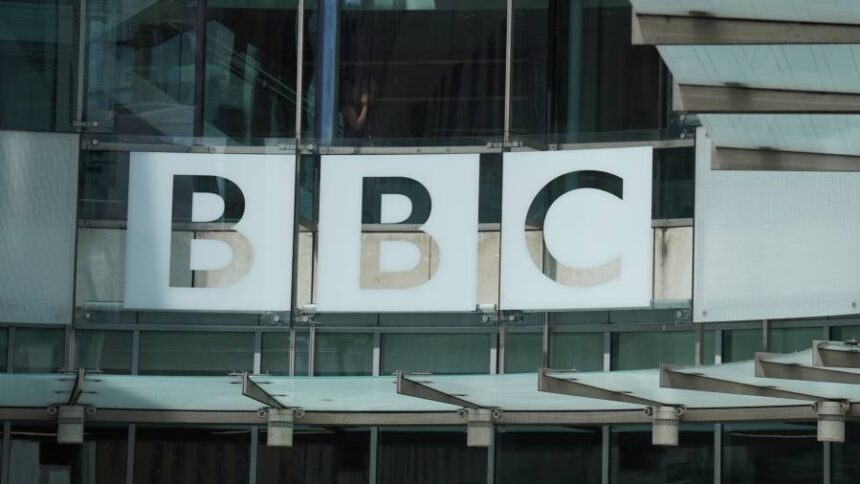Receive free BBC updates
We’ll send you a myFT Daily Digest email rounding up the latest BBC news every morning.
Downing Street has said allegations that one of the BBC’s top presenters paid a teenager for sexually explicit images were “concerning”, but that the prime minister had full confidence in the broadcaster’s director-general.
The BBC boss, Tim Davie, will face fresh scrutiny over his handling of the latest scandal to hit the broadcaster when it publishes its annual report on Tuesday. BBC executives were expected to meet the Metropolitan Police on Monday over the allegations, after alerting the force on Friday.
The broadcaster has come under scrutiny over how much it knew about the allegations after a complaint was made in May, with MPs demanding an investigation into how the BBC dealt with one of its most serious scandals in the last decade.
Downing Street said: “Obviously, these allegations are concerning. The secretary of state [Lucy Frazer] spoke to the director-general yesterday and was assured that the BBC is investigating this matter swiftly.”
The House of Commons’ culture, media and sport select committee is also holding an emergency meeting on Tuesday as MPs debate whether to summon Davie to explain his handling of the crisis.
The cross-party committee is likely to hold a one-off session before parliament breaks for the summer recess in less than a fortnight. Justice secretary Alex Chalk confirmed on Monday that the BBC was planning to meet police, and told Sky News that there might need to be an investigation about how the BBC handled the allegations.
The Sun newspaper has run a series of articles alleging that the presenter broke the law by paying tens of thousands of pounds to a teenager, who was 17 at the time of the first payment, for sexual images.
The newspaper said the family complained to the BBC over the presenter’s behaviour in May, but that he remained on air until the mother provided details to The Sun last week.
The presenter was only suspended on Sunday, leading MPs to question why it took so long for the BBC to act.
The Met confirmed it had been approached by the BBC but had not received a formal allegation.
One person familiar with the situation said the BBC was made aware of a complaint in May but that “what came last week was different”. They added that the original investigation had been “unsuccessful” in getting more detailed information from the suspended BBC staff member.
The presenter, who could face criminal charges over the allegations, has not been named in the media over privacy concerns despite widespread speculation that has forced some BBC stars to deny their involvement.
The number of BBC staff party to the process has been tiny: over the weekend even extremely senior executives who work with the presenter were still debating the evidence about the identity of the person at the centre of the scandal.
In a memo to staff on Sunday seen by the Financial Times, Davie said that the BBC investigations team had been looking at the allegation since it was raised in May “and have been actively following up”. But he added that “new allegations, of a different nature, were put to us on Thursday”.
He said that by law, individuals are entitled to a “reasonable expectation of privacy, which is making this situation more complex”. The BBC’s investigations team is led by former detective Jeff Brown.
Inside the BBC, senior executives warned that these sorts of allegations are particularly damaging. In 2012, it emerged that the late Jimmy Savile, who had been a BBC star for decades, was a serial sexual abuser and rapist. Not only did the BBC enable the late presenter’s behaviour, it cancelled a posthumous exposé of him in 2011.
The scandal was a major factor in the downfall of George Entwistle, then director-general.
One serving senior executive said that, if the nature of the current allegations was known, not suspending the presenter was “potentially totally explosive . . . A total failure to grip it. Classic BBC.”
One senior BBC executive said: “The question is who knew what, when and what did they do about it? And if that looks bad, it could have implications [for the director-general].”








